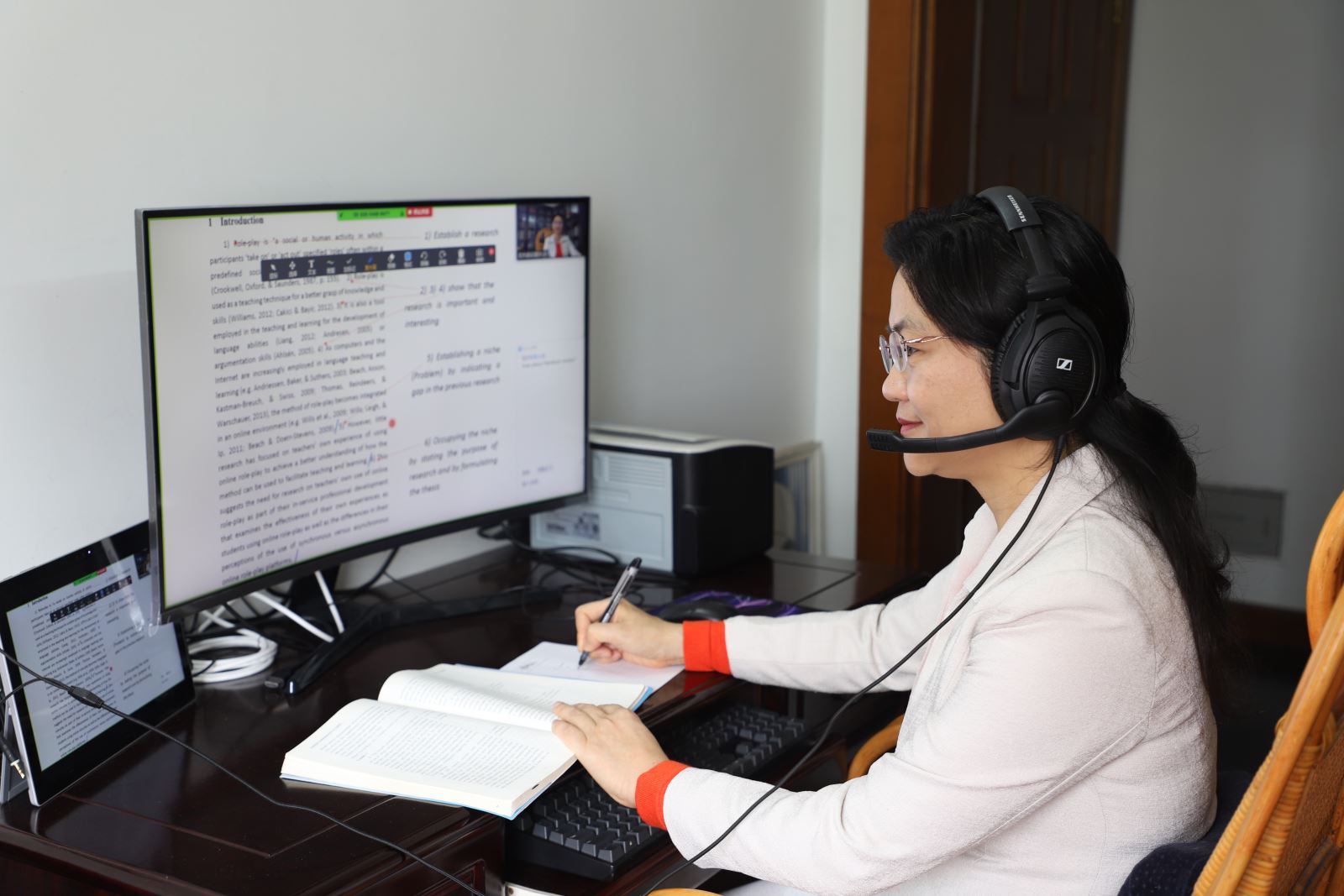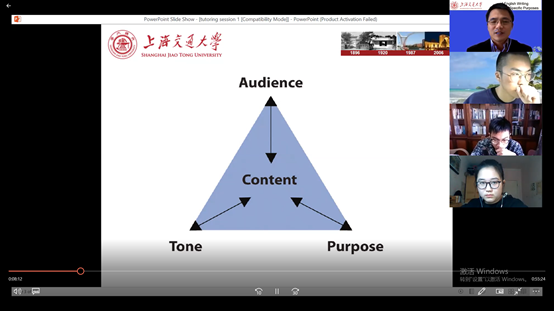School of Foreign Languages Embracing Online Language Teaching
On March 2, Shanghai Jiao Tong University started its new semester online. To ensure educational continuity, the School of Foreign Languages turned to remote teaching.
The scale and scope of online teaching at the School of Foreign Languages are unprecedented, with new possibilities to explore virtual language teaching and learning. A total of 160 courses, including 116 undergraduate courses and 44 graduate courses, have switched to an online format. Currently, the College English Division of the SFL delivers College English 2, 3, 4 and 5 to 136 classes of students who come from all schools and departments of SJTU.
The SFL has made concerted efforts to tackle the challenge, responding with proactive measures to cope with the outbreak of the pandemic while maintaining high quality in teaching. Teachers from the English, Japanese, German and French departments have marshaled their expertise and talents to make high-quality online language teaching a reality.
An Online Education Contingency Plan of the SFL was quickly drafted. Each course has its own supervisor to monitor the progress. Teaching assistants help in class attendance with roll-call apps. Much coordination has been done to accommodate foreign teachers and students in different time zones.
Most importantly, the shift to online instruction requires teachers to quickly learn new technologies and teaching methods. Language instructors are usually less eager to embrace such a technological shift. But after ten weeks’ using Canvas and the video conference platform Zoom, faculty find that they are discovering new possibilities in language teaching.
“There is a personal touch in Zoom class, even a kind of intimacy,” said Professor Zhu Yifan, director of SFL’s Center for Faculty Development. She explained that Zoom may benefit those students who may otherwise be too shy to speak up in a physical classroom.
Professor Zhang Li, who teaches Academic Writing and Presentation, said that “Now that we have adopted flipped instruction, students can acquire knowledge autonomously in SPOC before class, leaving much room for them to internalize the knowledge through ZOOM classroom discussion so that they have a better sense of gain.”

“My students and I find online teaching and learning joyful and beneficial.” stated Dr. Liu Xinhua, who teaches Practical English Writing. “For example,” he added, “technology helps make peer feedback easy and efficient by randomizing and anonymizing reviewers, tasks which are difficult to realize in the physical classrooms.”

According to Dr. Huan Changpeng from the College English Division, “All these changes will not only revolutionize our teaching philosophy and methods, but also forge a new relationship with students.”
Dr. Jiang Yan from the English Department emphasized that “Deliberately designed online courses can be comparable to the face-to-face classroom teaching.”
At the same time, a complete system for online language teaching, including ideas, structures, methods, technologies, standards, and evaluations, has been created. At the School of Foreign Languages, faculty, staff and students all believe that online language teaching not only poses a challenge but also offers opportunities.
